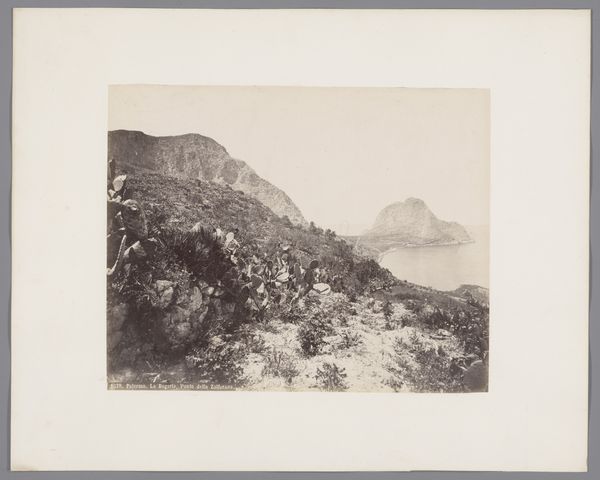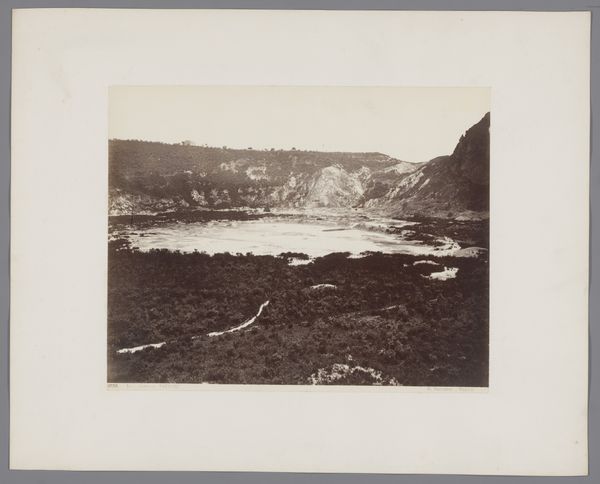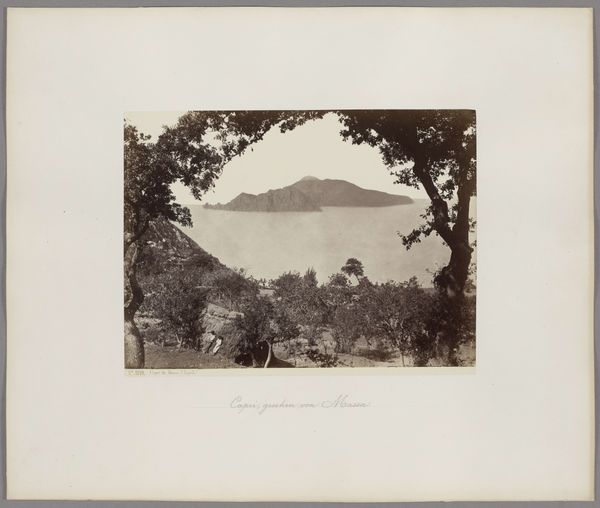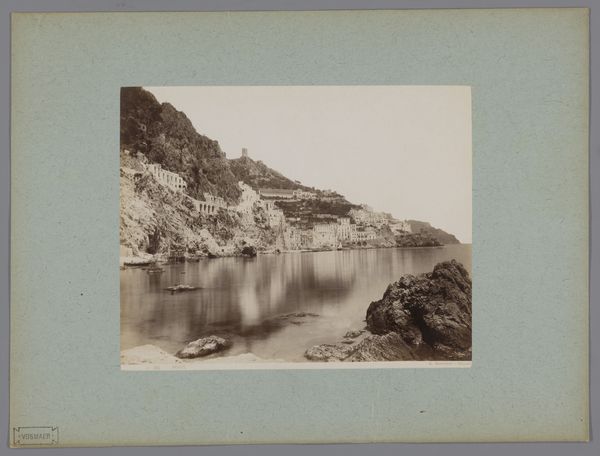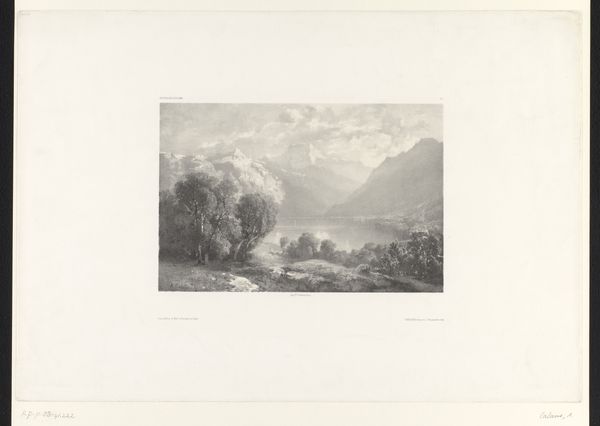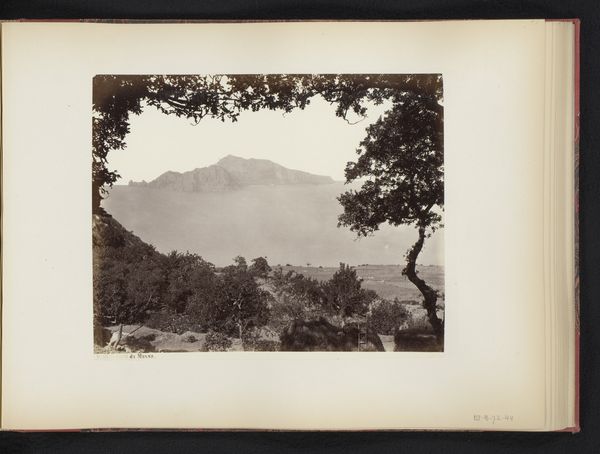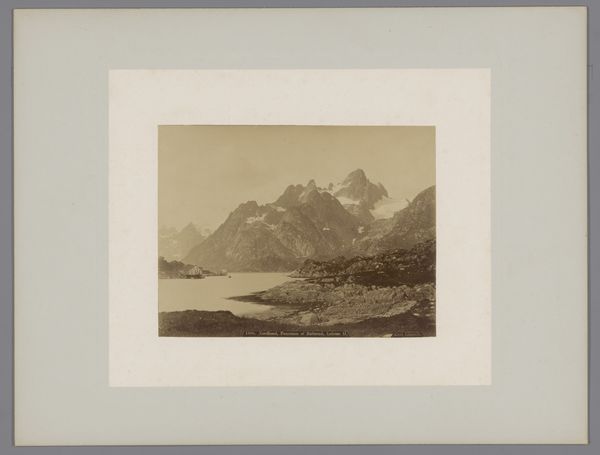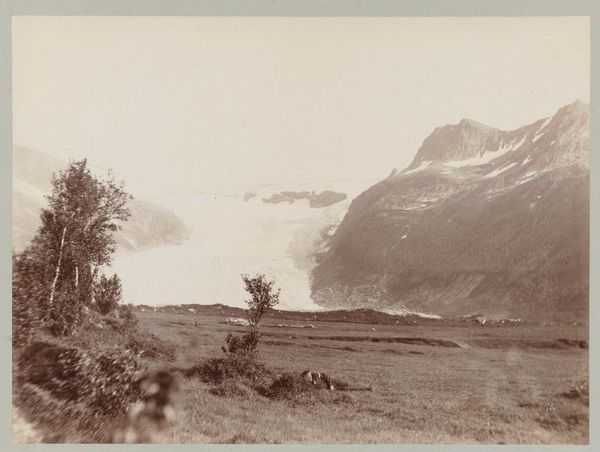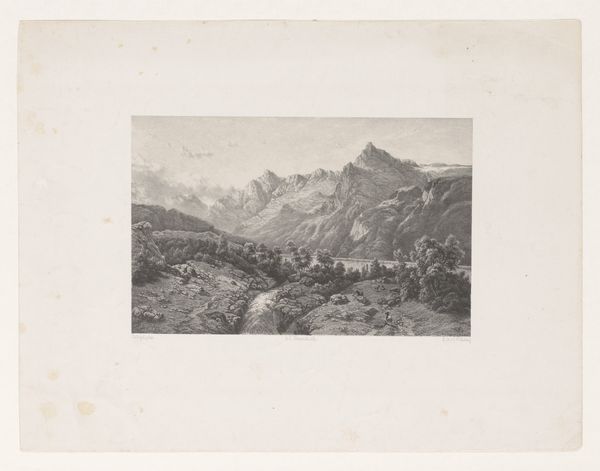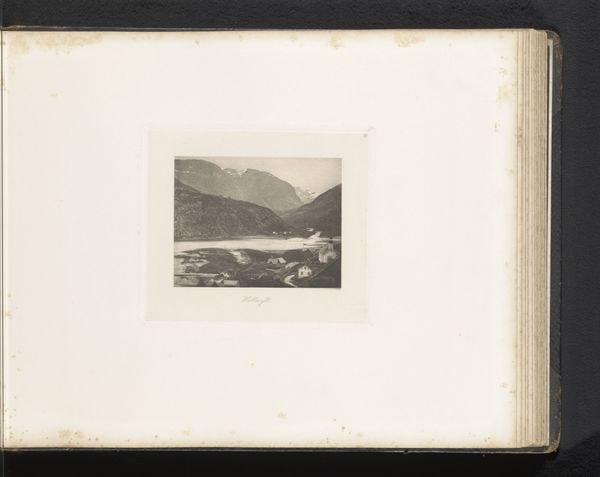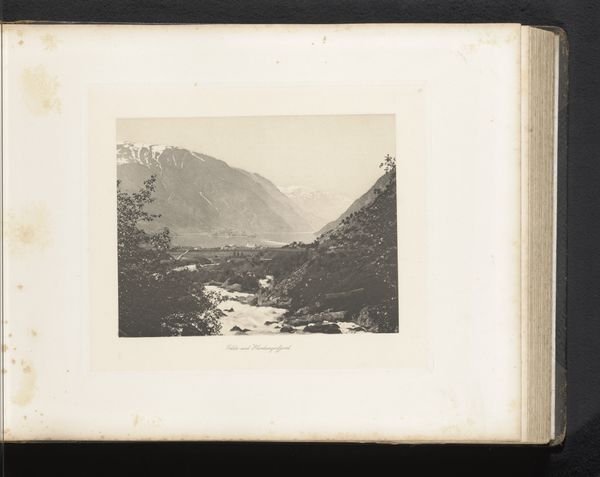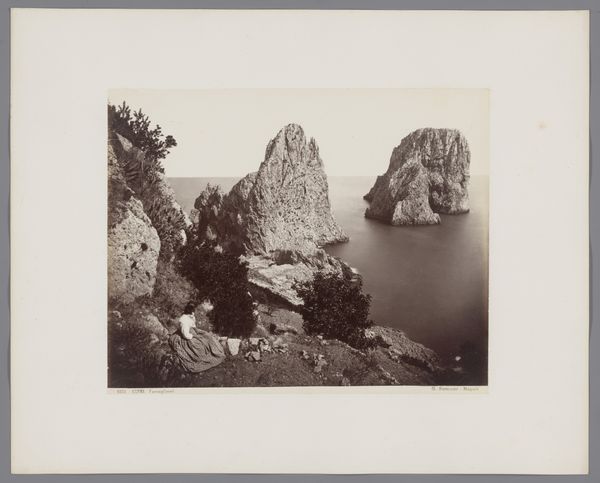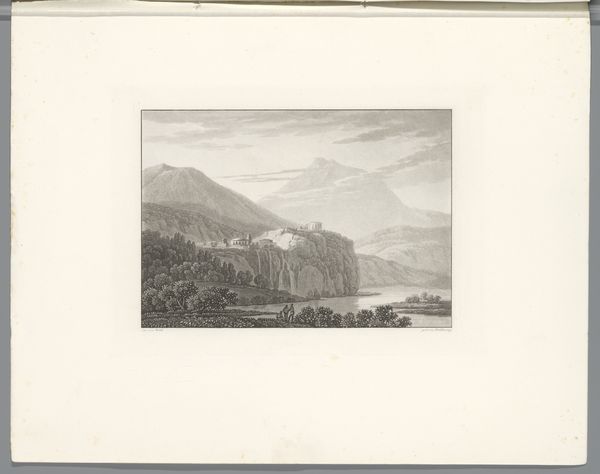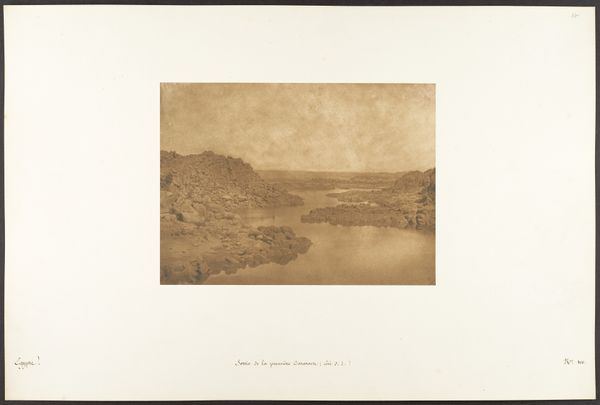
photography, albumen-print
#
pictorialism
#
landscape
#
photography
#
italian-renaissance
#
albumen-print
Dimensions: height 310 mm, width 386 mm
Copyright: Rijks Museum: Open Domain
Giorgio Sommer made this photograph of the bay of Capri in Italy using the wet collodion process. This was a popular method in the mid-19th century, requiring the photographer to coat a glass plate with a chemical solution, expose it in the camera while still wet, and then develop it immediately. The resulting image has a unique tonal range and clarity. The process demanded considerable skill and speed, making each photograph a unique, handcrafted object. The wet collodion process wasn't just a scientific technique; it was a labor-intensive craft. Photographers like Sommer were responding to the growing demand for images of faraway places, fueled by expanding tourism and colonial interests. These photographs were not just aesthetic objects, but also commodities in a rapidly globalizing world. By understanding the labor and materials behind this photograph, we can see it not just as a pretty picture, but as a product of its time, deeply connected to the social and economic forces shaping the 19th century.
Comments
No comments
Be the first to comment and join the conversation on the ultimate creative platform.
